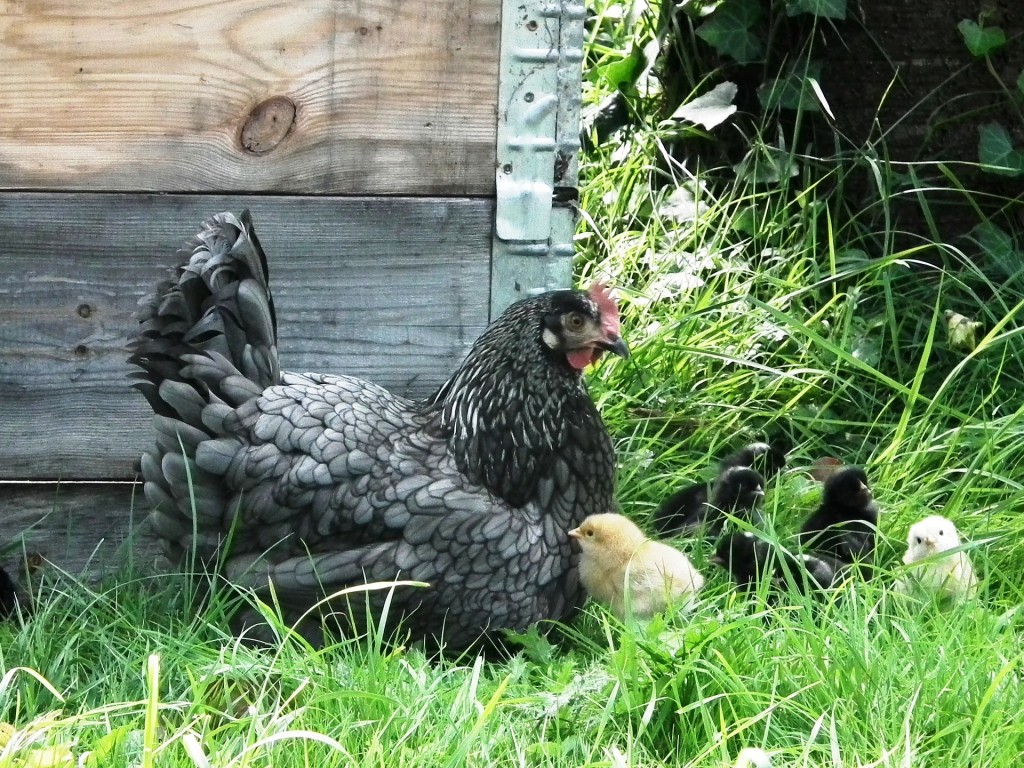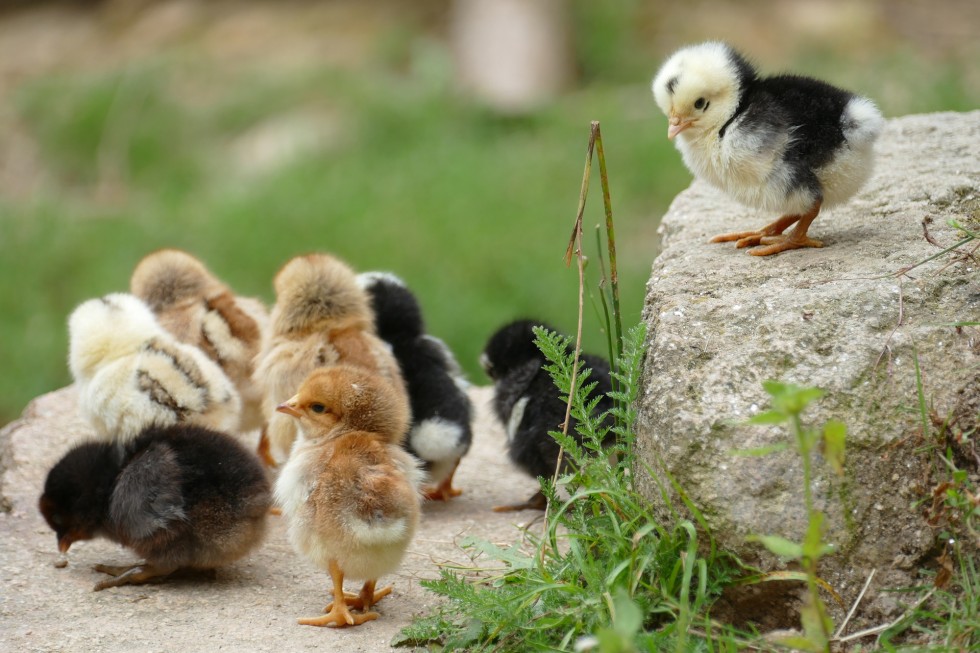Decided to start raising backyard chickens, but don’t know what to expect from the process and are yet to discover the basics? Look through this guide on keeping chickens in your backyard to plan for your chicks’ arrival and take proper care of them.
Tips to raise backyard chickens
1. Can you have chickens in your backyard?
Before making such an important decision and going out to purchase your first baby chicks (or eggs if you want to hatch them in an incubator), you need to figure out if you’re legally allowed to raise them in your backyard. The thing is that some states and municipalities forbid keeping chickens in a backyard, so check in with your local authorities prior to bringing the chicks in.
2. Creating a living space for your backyard chickens
Obviously, you want to create a comfortable, protected space for your chickens, as if you let them run all around your backyard, they will probably ruin all the grass and disturb people living in your household. Furthermore, that won’t be quite safe for the chickens. A chicken coop is the best option that allows for easier maintenance. You may either try to build one on your own (check out the DIY chicken coop project on our blog) or hire a carpenter to transform a corner of your backyard into a well-protected chicken coop with all the nesting and roosting areas, ramps, feeders, rest boxes, outdoor daytime space, etc. Or, if you don’t plan to have a lot of chickens, you may just purchase a pre-built chicken coop that fits your backyard.
No matter what you choose to do, make sure that the coop is well-built and protects chickens from possible predators, especially at night (even a rat may squeeze in between the wires and kill a small chick, not mentioning raccoons, foxes, snakes, big birds, etc.).
Good bedding is an all-time chicken coop essential. There’re a few bedding options you may choose from: pine shavings (quite affordable and easy to get), hay and straw (not too great, as these are harder to clean, they don’t absorb moisture too well and may develop mold), other plant-based bedding and sand.
3. Purchase chickens from a reliable farmer
Your success in raising backyard chickens will depend on the quality of the eggs you’ll purchase for hatching in an incubator or the health of tiny chicks you’ll get from the farmer. Chickens may suffer from numerous diseases, that’s why it’s important to purchase your first little ones from a reliable farmer who maintains proper living conditions for his chickens, feeds them high-quality food and prevents illnesses.
The easiest way to find a great place to purchase the chicks from is to ask your friends, family members or neighbors who raise backyard chickens for a referral. Also, you may look up different farms online, look through customer reviews, visit the farms to compare chickens’ living conditions and choose the best chicks.
4. How to handle baby chicks
A lot of first-time chicken owners decide to skip the baby stage and buy adult chickens for eggs. But, if you want the whole experience and plan to raise backyard chickens from the chick stage, you need to learn how to take proper care of them. The first thing you need to do is to choose the breeds of backyard chicken, as some breeds are more suitable for laying eggs, and some of them may serve the double purpose. For instance, the Rhode Island Red is probably the best breed of backyard chickens for beginners, who decided to keep chickens for eggs.
Then, you need to get a brooder with wood shavings bedding, feeders and water holders made specifically for baby chickens, a lamp with a reflector to keep the temperature of the warmest spot at 90-95F during the first week of baby chick’s lives and decrease it by 5 degrees every subsequent week. Chicks should be kept in a brooder that’s large enough for them (at least 2.5 sq. ft. per animal) with a lamp on till they’re 5-8 weeks old. If you stumble upon any problems with chicks’ health, make sure to contact a vet from HireRush.com to receive professional medical advice.
At 2 weeks old, you may start bringing them outside for short periods of time to let them play and run around in a protected area. Be careful! They’re quite fast and may escape. Once the chicks feather out, you may transition them from an indoor brooder to a chicken coop. If you already have adult chickens in there, keep your ‘teenagers’ in a separate pen inside the coop, so that your adults have a chance to get used to the youngsters and don’t attack them right away. After a few days, you may remove that pen and watch how your chickens behave.
The adult hens will peck the chicks a few times, and that’s normal. They’re just getting to know each other. But if you notice intense pecking and/or chasing, it’s better to step in and, instead of removing the poor chicks, take out the ‘aggressive hen and keep her in a separate pen within the coop. She just needs more time to adjust.
Keeping your chicks with a hen is the best and the most natural option, but the caring steps are quite similar, unless you want to keep your chicks and a hen free range and conducted all necessary protection arrangements.
5. Do you want to keep a rooster?
When purchasing adult backyard chickens, you have more control over the sex of animals: if you don’t want to keep a rooster, you just don’t get one. But if you decide to raise your chickens from eggs or baby chicks, there’s a high chance that you end up with one or two roosters.Not every chicken owner is Ok with that, as some people don’t want to eat fertilized eggs, and some just don’t want to stand the noise a rooster makes. Some roosters may be quite aggressive and attack hens, which is not something you want to have in your chicken coop. Furthermore, some neighborhoods don’t allow keeping roosters at all.
So, if you end up with a rooster and you don’t want to keep him anymore, you can give him away to a breeder or contact a local farm and ask if they would like to ‘adopt’ your rooster. My point is that there’s no need in killing that rooster if you decide that he doesn’t belong in your chicken coop.
6. Feeding backyard chickens
If you’re not raising your chickens free range, you will have to pay much more attention to their diet. Generally, you should feed your baby chicks with special chick food and chick grit. Once they get 3 months old, you may start transitioning them to adult food. You’ll have to develop your chicken’s diet depending on their breed and what you keep them for. For instance, you may purchase laying hen pellets to promote egg production and supplement with oyster shell and grit to provide your chickens with valuable calcium. Your chickens will also love grass, vegetables and even table scraps (bread crumbs, eggshell, etc.).
If you’re not raising your chickens free range, you will have to pay much more attention to their diet. Generally, you should feed your baby chicks with special chick food and chick grit. Once they get 3 months old, you may start transitioning them to adult food. You’ll have to develop your chicken’s diet depending on their breed and what you keep them for. For instance, you may purchase laying hen pellets to promote egg production and supplement with oyster shell and grit to provide your chickens with valuable calcium. Your chickens will also love grass, vegetables and even table scraps (bread crumbs, eggshell, etc.).
7. The short life of chickens
I want to be quite realistic with you. Some weak baby chicks may not make it to the adulthood. Some may die due to a stupid accident or a sneaky predator. Adult backyard chickens don’t live for as long as we would like to as well: they will lay eggs for two-three years, and after that, you’ll have to get new chickens for that purpose. Old ones may be kept as pets (you just let them die naturally) or you may eat them (I’m not a fan of this option, to be honest). You may start with 10 baby chicks/eggs and end up with 7 or 6 adult hens, and that will be quite great.





